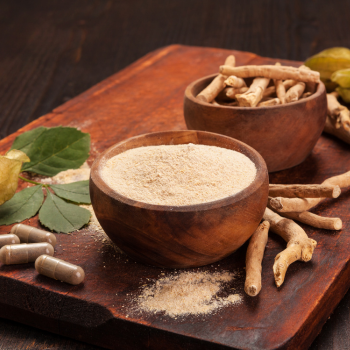🌿 Withania Somnifera, more commonly known as Ashwagandha, is one of the most revered herbs in traditional Ayurvedic medicine. Here’s a concise and focused breakdown for you:

Common Name: Ashwagandha
Family: Solanaceae
Part Used: Primarily the root, sometimes the leaves
🔬 Key Compounds
- Withanolides – Main active compounds, offer adaptogenic, anti-inflammatory, and anti-cancer properties
- Alkaloids – Somniferine, tropine (relaxant and calming effects)
- Saponins – Aid immune support
- Iron, amino acids, and antioxidants
💊 Therapeutic Uses
| Function | Description |
|---|---|
| Adaptogen | Helps the body cope with stress (mental, physical, emotional) |
| Neuroprotective | Supports brain function, memory, and focus |
| Anti-inflammatory | Used in arthritis and joint pain |
| Sleep Aid | Promotes restful sleep (the name somnifera = “sleep-inducing”) |
| Endocrine Support | Regulates cortisol, supports thyroid and adrenal function |
| Male Fertility & Testosterone | Improves sperm count and motility |
| Strength & Vitality | Boosts energy, stamina, and muscle strength |
🌼 Ayurvedic Classification
- Rasa (Taste): Bitter (Tikta), Astringent (Kashaya)
- Virya (Potency): Heating (Ushna)
- Vipaka (Post-digestive Effect): Sweet (Madhura)
- Effect on Doshas: Reduces Vata and Kapha
🧪 Modern Research Highlights
- Anxiolytic: Reduces cortisol levels and anxiety symptoms
- Cognitive Support: Improves memory, processing speed, and attention
- Exercise Recovery: Enhances muscle recovery and endurance
- Immunomodulation: Strengthens immune response
⚠️ Caution
- Not recommended during pregnancy
- Use cautiously in people with hyperthyroidism
- Mild side effects may include upset stomach or drowsiness in some users
